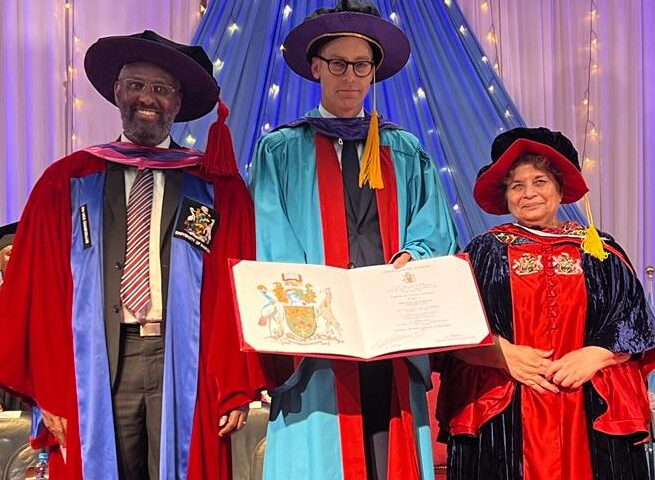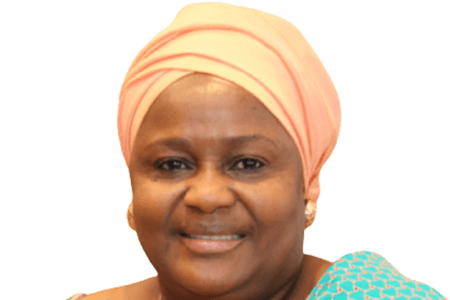University of Nairobi confers honorary degree on Prof. Patrick Verkooijen
CAPTION:
L- Prof Stephen Kiama, VC, University of Nairobi; Prof Dr. Patrick Verkooijen, CEO, GCA; and Dr. Vijoo Rattansi; the Chancellor for the University of Nairobi is Dr. Vijoo Rattansi/(Mrs) at the 67th Graduation Ceremony of the University
By Favour Nnabugwu
Global Center on Adaptation CEO, Professor Patrick Verkooijen, was conferred with an honorary doctorate degree by the University of Nairobi at the institution’s 2022 Commencement Ceremony in Nairobi, Kenya.
Professor Verkooijen was awarded a Doctor of Science, Honoris Causa, of the University of Nairobi in recognition of his long career and achievements in championing climate action globally and shaping bold action at scale in Africa.
The Vice Chancellor of the University, Professor Stephen Kiama, presented the award, describing Professor Verkooijen as a “champion of causes…that make the world a better place”.
“Today, the University of Nairobi is proud to confer the degree of Doctor of Science, Honoris Causa, to Professor Patrick Verkooijen in recognition of his distinguished academic and leadership career in climate change and adaptation”
Professor Kiama said. “His impeccable personal character and high morals embody much of what we value and aspire to at our university as captured in our philosophy; and through this friendship, we will accelerate knowledge on climate adaptation for a more resilient Africa.”
Ban Ki-moon, 8th Secretary-General of the United Nations and Chair of the Global Center on Adaptation, congratulated Professor Verkooijen on his award. “With this honorary doctorate, I believe the University of Nairobi is recognizing a very special contribution to fighting the climate crisis” he said.
“Professor Verkooijen has been a global leader in the fight against the climate breakdown for over a decade. His work at the helm of the GCA shows his tireless dedication to the cause of building sustainable, resilient future for all of us.”
Previous recipients of honorary degrees from the University of Nairobi include Dr. Kofi Annan, 7th Secretary-General of the United Nations and Nobel Laureate Wangari Muta Maathai.
Verkooijen used the occasion to underline the climate emergency in Africa. He stated: “Africa is climate crisis ground zero. If Africa loses out to the climate crisis, the world will lose out. Adapting Africa to the climate crisis is not just about survival. It is about Africa’s growth agenda. It is about jobs, development, and prosperity.”
“The sooner we stand together as a global community, the quicker we will all see ourselves through the great storm of the climate crisis. This University – and its students – are pioneering adaptation solutions right here in Kenya and can be an inspiration for all the world.”
Recognizing his track record for transformative change, the University of Nairobi also appointed Professor Verkooijen as the Distinguished Chair of The Wangari Maathai Institute for Peace and Environmental Studies.



